Addiction is a lonely condition. A person may feel out of touch with reality. When an individual decides that it is time to deal with a drug or alcohol misuse disorder, it is essential to seek assistance. The first step of recovery is the detox process. This occurs as withdrawal sets in. When a user stops taking drugs or alcohol, negative symptoms develop until the items are out of the body. This can be quite challenging to complete without help. In many instances, medical detox is quite beneficial. At Garden State Detox, we believe that long-term sobriety rests on early treatment. Our residential treatment program concentrates on the detox process, which stabilizes a person’s physical state and prepares him or her for the rest of the recovery journey. While a person remains in our facility, we offer compassionate care and consistent supervision that encourages long-term sobriety.
What is Medical Detox?
As the body becomes dependent on a substance, the removal of the substance leads to a variety of symptoms. Medical detox offers a safe haven during the withdrawal process and provides medical supervision. If necessary, a patient receives medication that lessens the side effects of detox. In the end, it makes the process safer and easier. When a person tries to detox at home, a relapse often occurs. Medical detox helps to curb the most worrisome symptoms.

- Nausea
- Fatigue
- Insomnia
- Intense sweating
- Hallucinations
- Shaking
How Long Does Detox Take?
In most instances, detox may last from a few days to a few months. For example, alcohol leaves the body much quicker than other substances. However, the residual cravings may last longer. There is no definite timeframe for detox, but its length depends on a few factors.
- What substance is used
- How much a user took
- Underlying medical or mental conditions
- A person’s medical history
In many cases, residential care is provided on a short-term basis.
Effectiveness of Detox in a Residential Treatment Program
When a person detoxes alone, he or she will be stressed, frightened, and uncomfortable. Our residential treatment program helps throughout this process. There are many reasons why this type of treatment is highly effective.

- Provides Personal Care. The journey toward recovery is personal. Each individual’s experience is unique. From the first steps into Garden State Detox, each patient is provided personal care that targets his or her individual health and well-being. A special plan is created. In many instances, we use holistic methods of treatment to make the detox process easier. Staff members are always available as well.
- Comfortable Setting. A residential treatment program offers a safe and calming environment. Remaining comfortable throughout the detox process makes things go smoother. Our facility was designed to be relaxing and peaceful. We have both public and private areas so that an individual can be alone or can socialize whenever he or she wants.
- Discreet Surroundings. Dealing with a drug or alcohol misuse disorder is always stressful. Seeking assistance offers a way to gain support through the recovery process. Unfortunately, there is a negative stigma attached to entering a treatment facility. We understand that you want your condition handled in a discreet manner. We maintain your privacy as you get your life back on track.
- Professional Staff. At Garden State Detox, your well-being is our highest priority. Our team of licensed medical professionals offers top care and support. We make sure that patients have all the essential resources to get further into recovery.
Methods of Treatment with Residential Care
During his or her stay, an individual will be closely monitored throughout the detox process. At Garden State Detox, everyone has access to various group therapies, activities, and counseling. Besides conventional care, we offer alternative treatments that raise the likelihood of gaining sobriety.
- Medication-Assisted Treatment. As previously discussed, medication-assisted treatment includes the combination of medicines and behavioral therapies to offer a “whole person” approach to the treatment of a substance misuse disorder. In fact, the FDA has approved many different medicines to treat drug or alcohol misuse issues. They lower withdrawal symptoms and decrease cravings that lead to chemical imbalances. For instance, naltrexone and acamprosate are commonly used to treat an alcohol misuse disorder.
- Nutrition Therapy. When a person is recovering from a substance misuse disorder, it is essential to learn healthy eating habits. Any type of addiction can wreak havoc on a person’s body. It is forced to work harder so that toxins are eliminated. By learning how to incorporate essential vitamins and minerals into regular meals, it is possible to reverse certain damages that may have occurred to organs and systems in the body.
- Massage Therapy. Withdrawal can be difficult on a person’s body. Usually, withdrawal brings pain and stress. Massage is a way to relax the muscles and to make a person feel more comfortable.
- 12-step Programs. Garden State Detox understands that introducing clients to a 12-step program encourages recovery. In group meetings, accountability is gained. Also, close relationships are formed between people who are dealing with similar challenges. The support is priceless when overcoming a drug or alcohol misuse disorder. Each person has a mentor who provides guidance during the 12 steps.
Reasons to Choose a Residential Treatment Program for Detox
When a person enters residential treatment, it is possible to commit to recovery fully. Individuals are placed away from everyday distractions, including work, home, and school. Detox is arguably the most difficult part of recovery. When an individual is kept away from people and environments that encourage a drug misuse disorder, it is possible to begin a successful journey of recovery. With assistance from the medical staff, people receive constant attention and monitoring. Also, each client is assigned to a therapist who may begin uncovering the root of the problem.

Detoxing from a Drug Misuse Disorder When a Co-Occurring Disorder Exists
Detox from a drug or alcohol misuse disorder is difficult enough without adding issues that are associated with a mental illness. It is very common for a person to be diagnosed with a co-occurring disorder. Co-occurring disorders bring multiple problems. To begin, when a person uses drugs or alcohol, it does nothing positive for his or her simultaneous mental disorder. Also, it prevents a person from learning necessary coping mechanisms that aid in recovery. Drug or alcohol misuse may interfere with a person’s prescription medicine for the mental condition as well. At Garden State Detox, our staff is prepared to deal with these situations. We offer a specialized residential program. Under the supervision of a psychiatrist who is trained to deal with detox and a mental disorder, it is possible to achieve successful results.
Choosing a Residential Treatment Program that Works
At Garden State Detox, we take a simple approach to the detoxification process. Our compassionate and experienced staff listens and begins your journey of recovery with you. Each person has a different story. From the first steps taken into our facility, we develop an individual plan for each client. We assist through the detox process so that each client has a solid foundation for future treatment. We utilize a number of therapies and methods to ensure long-term sobriety. Luckily, we work with most insurance providers. For more information, contact us today.
Thinking about visiting from out of state?
New Jersey is a northeastern U.S. state with some 130 miles of Atlantic coast. Jersey City, across the Hudson River from Lower Manhattan, is the site of Liberty State Park, where ferries embark for nearby Ellis Island, with its historic Immigration Museum, and the iconic Statue of Liberty. The Jersey Shore includes notable resort towns like historic Asbury Park and Cape May, with its preserved Victorian buildings. This means it’s a safe place to seek Residential Addiction Treatment.
FAQ
What is involved in detoxification of drugs?


